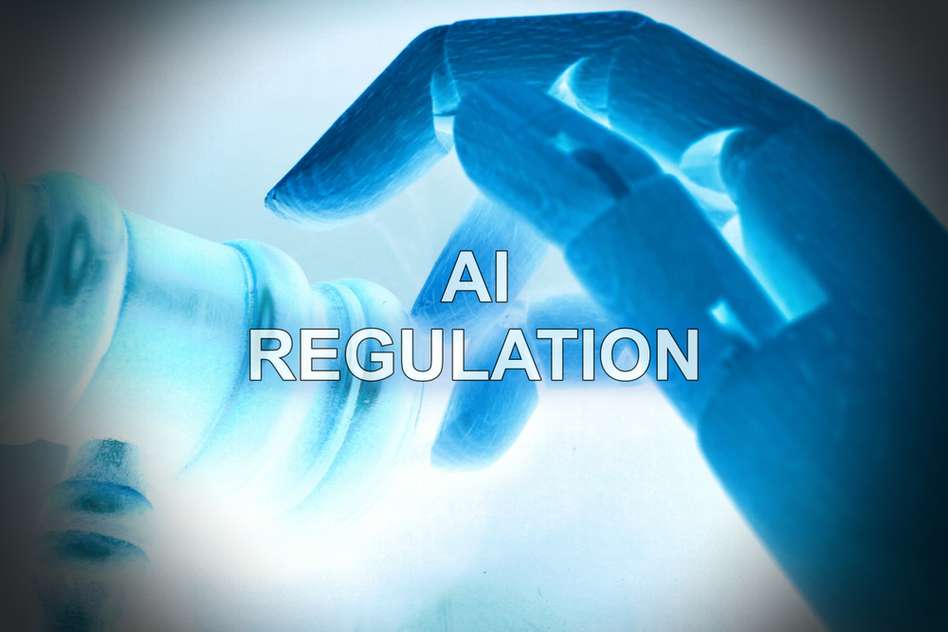Navigating AI regulation in the UK: Essential insights for employers

This year, the European Parliament formally adopted the Artificial Intelligence Act (“AI Act”), the first comprehensive law designed to regulate AI on a broad scale across the European Union.
This landmark piece of legislation which was introduced on 13 March 2024 laid the foundation for AI governance within the EU but has left some UK employers wondering how these developments will influence the regulatory landscape, particularly as we observe the new long-term objectives for AI that have been proposed by our Labour Government.
The Current UK Regulatory Landscape
Last year on 3 August 2023, the Government released their AI Regulation White Paper which indicated that the UK had no plans to introduce a horizontal AI regulatory framework like the EU. Instead, the feedback received as part of the Government’s consultation on the policy suggested that the UK would lean more towards adopting a principles-based model that would allow existing sector-specific regulators to tailor AI regulations according to their respective industries. At present, this position remains unchanged, and it is likely that we will see AI-specific laws and regulations introduced in the UK in the not-so-distant future.
As the UK Government enacts its AI agenda, employers will have to navigate several considerations for effective AI regulation and compliance. Below, we have explored some of the essential areas that employers should focus on as they look to integrate AI systems into their businesses.
Sector-Specific Regulation
Employers should familiarise themselves with how AI regulations may differ across various industries. Each sector may be guided by unique regulatory bodies that impose different requirements for AI use, and which would necessitate a more proactive approach to compliance. In addition to this, businesses should conduct their own assessment of AI technology to ensure that it adheres to existing regulations and anticipate any future legislative changes.
AI Development
The Government has emphasised the importance of responsible and ethical AI use. Employers will need to ensure they engage in best practices around transparency, accountability and inclusivity where AI is deployed, to mitigate potential risks (where possible) and maintain public trust. This may involve implementing new policies and guidelines for the ethical deployment of AI technologies.
Impacts on Employees
As AI systems evolve, so do their effects on the workforce. Employers should understand the implications of AI on jobs and employment dynamics. Preparing the workforce for reskilling and deploying AI in underserved areas of business will be crucial for maintaining a productive and efficient working environment. Earlier this year, The Institute for Public Policy Research estimated that roughly 11% of workplace tasks are exposed to automation through existing generative AI, and that this could rise to 59% of tasks in the second wave of AI adoption as technologies develop to handle increasingly more complex processes.
Data Privacy and Security
With AI’s reliance on handling vast amounts of data, compliance with existing data protection regulations (such as the General Data Protection Regulations) is highly important. Employers must ensure their AI systems are secure and responsible in their data usage and align with the latest best practices.
Monitoring Regulatory Changes
The AI regulatory landscape is continuously evolving. Employers should establish mechanisms to stay informed about upcoming regulations, guidelines, and industry standards that could impact their practices. This could involve, among other things, engaging with industry associations, regulatory bodies, and participating in relevant forums.
As employers look to navigate the evolving AI landscape, it is crucial that they adapt and remain compliant with the latest legal requirements. Company policies, hiring practices, and data privacy protocols should be reviewed periodically to reflect the changes to AI tools and technologies. Encouraging a culture of continuous learning by helping employees upskill and adapt to these changes can be an advantageous strategy and help equip staff with the knowledge to use AI responsibly and effectively.
Balancing innovation with regulation always requires a strategic approach. Businesses should consider using AI effectively whilst adhering to new legal and ethical standards to stay compliant and support a responsible and sustainable AI-driven future.
At Tees, we have specialist Employment Law experts with many years of experience who can help businesses navigate the complex and evolving AI landscape confidently and clearly.
Tees are here to help
We have many specialist lawyers who are based in:
Cambridgeshire: Cambridge
Essex: Brentwood, Chelmsford, and Saffron Walden
Hertfordshire: Bishop's Stortford and Royston
But we can help you wherever you are in England and Wales.
Chat to the Author, Katherine Jameson
Associate, Employment Law, Bishop's Stortford office
Meet Katherine
- Areas of expertise
- Accreditations
- Testimonials
Legal 500 UK 2025
South East - Essex
Rob Whitaker & Katherine Jameson for their knowledge, practical and straightforward logical approaches, disseminating information to find a solution in good time.
Legal 500 UK 2025
South East - Essex
Rob Whitaker & Katherine Jameson stand out for their knowledge, expertise & support when I need it.
Legal 500 UK 2025
South East - Essex
Katherine Jameson is a grafter and provides a brilliant service to her clients.
Legal 500 UK 2024
Essex
Katherine Jameson provides excellent client care and is very hardworking. She gives realistic and sensible advice when appropriate and is more than capable of fighting her client’s corner.
Legal 500 UK 2024
'Katherine Jameson provides excellent client care and is very hardworking. Realistic and sensible advice when appropriate, but also more than capable of fighting her client’s corner'




